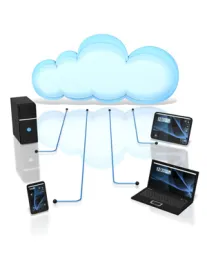We get it. You sell widgets. You’ve always sold widgets. Your time-tested terms of sale/purchase have served you faithfully through product, industry, and economic cycles. You don’t sell apps or clouds, so why should this brave new digital world shake up your contracting process? If you have a portal or provide other electronic access to your counterparties, it’s probably time to dust off your trusty standard terms.
The Status Quote
Your process might be well established. You attach your standard terms to your purchase orders and invoices. You disclaim your warranties while making your suppliers promise the moon. Your potential liability is infinitesimal while you conveniently neglect to limit your counterparties’ liability. You include some magic “battle of the forms” language so that your favorable terms will prevail. All pretty standard practice thus far (if you haven’t gotten around to negotiating and executing formal supply agreements).
Set aside (for a future post) the possibility, or strong probability, that your widgets will soon be communicating with one another and a myriad of other products and services as part of the Internet of Things (IoT) labyrinth, and take a moment to consider how you engage your customers and suppliers. Have you been utilizing e-commerce to significantly improve convenience and efficiency? If an online platform were your product, rather than just a logistical tool, you would carefully craft end user terms that protect your rights and limit your liabilities associated with the platform. Any e-commerce application, though, regardless of whether you directly commercialize it, raises security, intellectual property, and liability issues. The good news is your standard terms can remain largely intact—just a few additions and minor modifications can modernize your forms.
Let’s Get Widgetal
As an initial step, establish end user terms that govern access to your site, portal, or other e-commerce application (Portal). As we’ve previously discussed, requiring end users to expressly indicate their acceptance of your end user terms (i.e., through click-wrap agreements) before they can access or use the Portal strengthens your argument that your end user terms are binding.
In conjunction with establishing a click-wrap process, specifically reference and incorporate your end user terms in your standard terms of sale/purchase, thus putting your counterparty on notice and giving you an argument that the counterparty entity, not merely the individual end user, is bound by your end user terms. In addition, consider adding Portal-related provisions to your standard terms, including the following:
-
Access to and use of the Portal is limited to certain authorized users (e.g., preapproved counterparty employees) solely on behalf of the counterparty and solely for the authorized purposes and scope.
-
The counterparty will ensure each authorized user agrees to and complies with your end user terms.
-
You may modify, or limit, suspend, or terminate any access to, the Portal at any time.
-
The counterparty grants you the right to use any data or other content provided by it or any authorized user. Note that the scope of your rights to use data and content might depend on the nature of the information (e.g., unlimited rights regarding de-identified data).
-
The counterparty will protect all passwords and other access credentials.
-
The counterparty will be responsible for all actions taken via an authorized user’s account until the counterparty provides written notice of a change in such authorized user’s status.
-
The counterparty will maintain the confidentiality of all information and content available via the Portal.
-
You own the Portal and all associated content, and you reserve all rights not expressly granted to the counterparty.
Before you cement your new standard terms for generations to come, do a general review for provisions you could tweak to address e-commerce issues. For example, in your terms of purchase, consider broadening the counterparty’s indemnification obligations to include claims arising from counterparty-submitted content or any breach of the end user terms. In your terms of sale, consider broadening your disclaimer of implied warranties to include the Portal and all associated content.
By taking some of the steps outlined above, your standard terms will more closely reflect the hybrid physical/digital nature of your transactions and commercial relationships. But keep your forms handy because IoT is not your grandfather’s widget.




 />i
/>i
